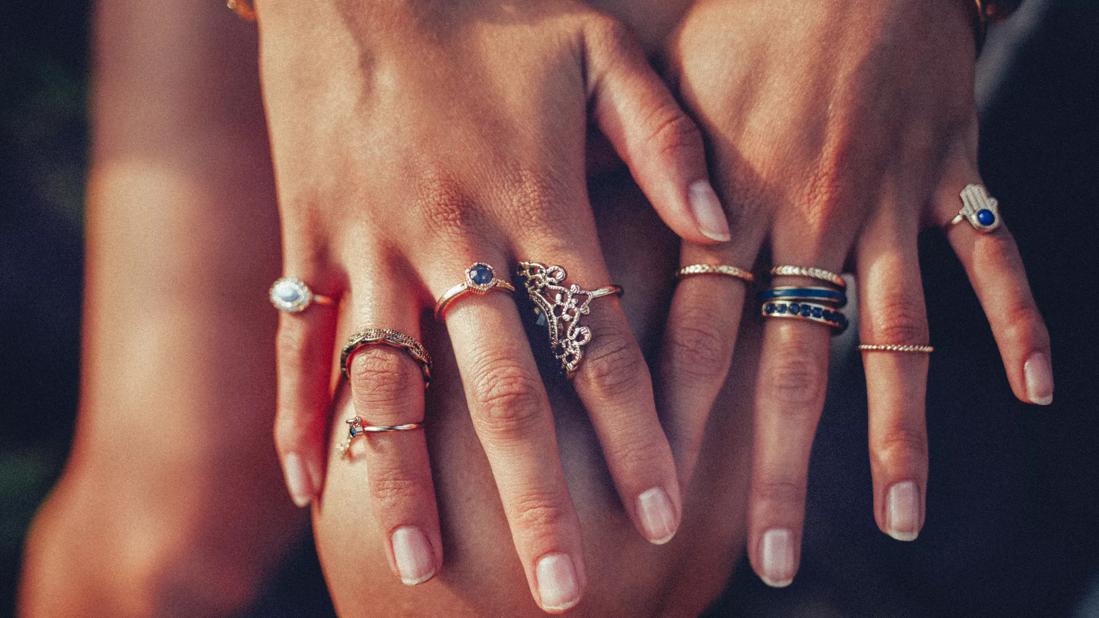Find out what to watch for and what to avoid

Image content: This image is available to view online.
View image online (https://assets.clevelandclinic.org/transform/8aada191-08a4-4ee4-9694-200a54d2d716/Rings_jpg)
Hands showing many metal rings on the fingers.
If you have metal allergies, you might know that touching coins, jewelry and even doorknobs can trigger a reaction, known as allergic dermatitis. But it might surprise you to find out that metals may hide in other items you come in contact with every day. Which metals are most likely to trigger allergies, and where else do they lurk?
Advertisement
Cleveland Clinic is a non-profit academic medical center. Advertising on our site helps support our mission. We do not endorse non-Cleveland Clinic products or services. Policy
Dermatologist John Anthony, MD, answers this burning question and shares his best advice for keeping metal allergies at bay.
It helps to understand what happens when your body comes in contact with a metal to which you’re allergic. “Metal allergies are similar to any other type of allergic reaction,” says Dr. Anthony.
Your skin cells pick up small molecules of metal, which travel to your lymph nodes. Your body treats the offending substance like a foreign invader and quickly mounts an immune response. The result: redness, itching, swelling or a rash, with skin blistering or scaling at the site.
The symptoms of a metal allergy range from mild to severe. Each time you’re re-exposed to the offending metal, your skin reacts in the same way.
“You can develop an allergy to any metal,” Dr. Anthony says. But nickel, cobalt and chromates are the usual suspects. Manufacturers often use nickel and cobalt to alloy with other metals. You’ll find these metals in lower-quality jewelry such as costume jewelry, he says.
If you’re allergic to nickel, cobalt or chromates, Dr. Anthony suggests swapping costume jewelry for jewelry made from higher-quality metals. Metals less likely to cause a reaction include:
Advertisement
If gold is your thing, be sure to choose yellow gold that is 14-karat gold or higher, he says. Avoid white gold and plated jewelry, as these are sometimes alloyed with nickel or cobalt.
(Could what looks like an infected piercing be an allergic reaction? Possibly. A family physician offers tips on how to tell the difference.)
You’ll need to look beyond jewelry for potential sources of metal. Metal can hide out in products and devices where you’d least expect it. Here are six surprising sources:
Skin-patch testing can help you find out if you are allergic to metal. If you are, it’s important to work with your dermatologist to find ways to limit your exposure.
“Whether it’s wearing gloves, adjusting your diet or painting the back of the button on the inside of your pants with clear nail polish, you have many ways to reduce or eliminate your exposure to metal allergens,” Dr. Anthony says.
Advertisement

Sign up for our Health Essentials emails for expert guidance on nutrition, fitness, sleep, skin care and more.
Learn more about our editorial process.
Advertisement
If you have a vagina, bubble baths aren’t a good idea at any age
Most recommended precautions center around minimizing bruising or swelling
Even one drink can have an impact on your cognitive function leading to slurred speech, blurred vision and impaired memory
Understand who may (and may not) benefit
Lorem ipsum dolor sit amet. Et odio Quis vel ipsam omnis eum alias deleniti et placeat impedit non voluptas galisum hic autem enim et cupiditate aliquid. Est beatae quidem non facilis autem ut commodi nisi aut tempore rerum et dolores voluptatem cum enim optio id sapiente quasi. Ad laboriosam officiis 33 cupiditate sequi ea voluptatum consectetur qui necessitatibus voluptate et quasi doloremque et facere explicabo quo explicabo officia
Seeking help through therapy can be an important step in improving your quality of life when you have UC
Type 2 diabetes isn’t inevitable with these dietary changes
Applying a hot or cold compress can help with pain
Pump up your iron intake with foods like tuna, tofu and turkey